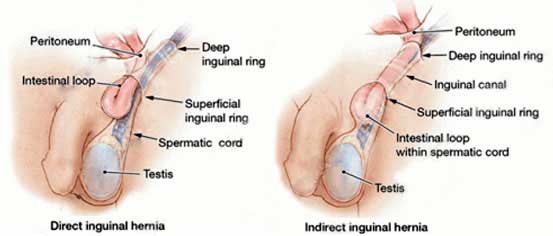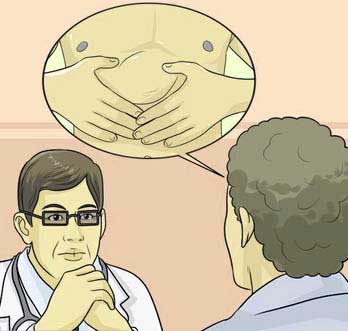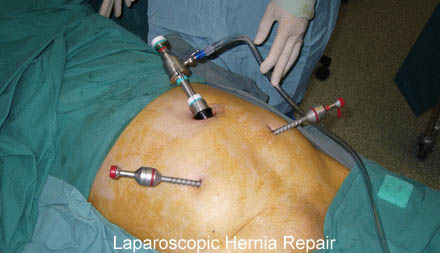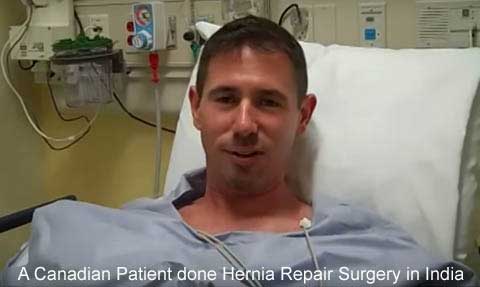Inguinal Hernia / Hydroceles Surgery in India
An inguinal hernia (IH) is organ protrusionor a tissue over the weak spot found in the muscle over the groin region. As you find the inguinal hernia enlarging, it is seen getting in the form of a sac while the internal organs like the intestines can easily fall inside this sac that end up creating a bulge. The bulge is among most visible thing there when you find a person standing up or seen disappearing temporarily whileseen in the lying down position. A hernia can be seenoccurring when you find a section of intestine protrudes via the weakness over the abdominal muscles. With the soft bulge found underneath the skin wherein you can find the hernia in it can become a bit of problematic. A hernia that is seen occurring over the groin area is known as the inguinal hernia. Well, one can define the hernia to be a condition in which a certain part of the intestine bulges are seen via a weak area insidethe muscles over the abdomen area.Whereas the Inguinal hernia can be termed as the Protrusion of the intestines seen getting out over the groin areas.

Symptoms of Inguinal hernia
When it comes to Inguinal hernia you can find the symptoms given below:
- Grion Lump
- Groin pain
- Intestinal blockage
- A full, round abdomen
- Vomiting
- Pain or fussiness
- Redness or discoloration
- Fever
What causes an inguinal hernia?
Men: Hernias are adults are often thought of as a "rupture" of muscle that allows an out pouching of the contents of the abdomen. This does occur sometimes in adults, but rarely if ever in children. Inguinal hernias in children are the result of a persistent connection between the inside of the abdomen and the scrotum (or labia). This connection, also called the processus vaginalis, is normal during fetal life, but usually closes before birth. When it does not close, a hernia or hydrocele may develop.
Women: A hernia can be seengetting developed in the first few months once a lady delivers a because of certain amount weakness found in the abdomen muscles. As you find the male fetus growing and maturing during pregnancy, the testicles in turn get developed inside the abdomen and then are seen moving down the scrotum via an area known the inguinal canal. Just after the baby is born, the inguinal canal is seen getting closed, which in turn help in preventing the testicles from moving back over the abdomen area. If this area doesn’tis seen getting closed off completely, aloop of intestine can be seen moving inside the inguinal canal via the weakened section of the lower abdominal wall and that simply causesthe issue called hernia. Although the girls are seen doesn’t have the testicles, they can be seen having an inguinal canal, so these can be seen developing the hernias in this area as well.
Who is at Risk for Developing a Hernia?
The inguinal ligament is a tight band located between the thigh and the stomach and there are several weak spots along it. Obesity, pregnancy, heavy lifting, chronic coughing, constipation and straining to pass stools can cause the intestine to push against the abdominal wall, and a part of intestine may slip through a weak spot, creating a lump. This lump is called a hernia.
A hernia consists of a sac - the peritoneum - which may contain a piece of intestine (an intestinal loop). It is often able to move inside your body, meaning that it disappears when you lie down, and reappears when you stand up or are straining to pass a stool. The hernia itself is harmless.
However, a hernia can be dangerous if it gets trapped in the weak spot in the abdominal wall and becomes tender. This is known as a strangulated hernia. If the intestinal loop is damaged, its contents can leak out. Gangrene and peritonitis, which can be life-threatening, may occur as a result. Strangulation is an emergency requiring urgent surgery.
The hernias can be seenoccurring more often among the kids who are known to have one or more of the following risk factors:
- A parent/ sibling who is seen having hernia as a child
- The Cystic Fibrosis
- The Developmental of Dysplasia Over the Hip Area
- Undescended Testes
- The Abnormalities of the Urethra

Types Of Hernia
Indirect inguinal hernias
An indirect inguinal hernia is located in the inguinal canal. In males, this is the location of the spermatic cord.
- Typically, the hernia is discovered when it descends into the scrotum.
- The hernia may be present at birth.
- The treatment for this type of hernia is removal through surgery. Although this can be performed immediately after birth, some surgeons prefer to wait until the child has reached the age of two. Surgery is also the standard treatment for older children and adults.
Direct inguinal hernias
This type of hernia appears later in life.
- It is often two-sided.
- Obesity and hard physical work can contribute to its development.
- It can be seen and felt towards the middle of the inguinal ligament.
- Surgery is again the standard treatment for this type of hernia. Unfortunately, in many cases the hernia recurs and the surgery has to be repeated.
- When a very elderly person has a hernia, the doctors may decide not to operate if the hernia is unlikely to cause complications.
Femoral Hernias
Femoral hernias are rare, and mostly seen in middle-aged and elderly obese women who have given birth several times.
- The hernia is seen as a lump below the inguinal ligament.
- The treatment is surgery.
How are Inguinal Hernias Repaired?
Overall, there are two ways of treating the inguinal hernia.
- Herniorrhaphy - done under general anesthesia, the protruding part of the intestine is pushed back into the abdomen and the weak part of the abdominal wall is repaired and sewn.
- Hernioplasty - also done under general anesthesia, a piece of synthetic mesh is used to cover and reinforce the entire inguinal area including the weak points or holes.
- Laparoscopic Hernioplasty - minimally invasive technique to repair Inguinal Hernia. In this technique, a Laparoscope is inserted through a small incision in the abdominal wall and Hernioplasty is performed while visualizing the interior of the abdomen using a video camera. Usually done under general anesthsia.
- The traditional open repair: In this kind of repair the surgeon is seen giving the patient local, spinal or general anesthesia followed by making an incision of 10 - 15 cm over the groin and is seen cutting viathe skin layers, the fatty tissue and the muscles that are seen revealing the hernial sac. The contents of the hernial sac are then seen getting pushed in return. Then you can find the weak area being reinforced with a special nylonkind of net/ mesh. Then, the surgeon is seen stitching the muscles and ligaments together for strengthening the area. The mesh can be seen staying over the body permanently and that in turn strengthens the area. Generally, it doesn’t really cause any amount of side effects. With the help of a mesh repair the rate of recurrence of the ailment called hernia is extremely low as 1 to 2 percent. Butfor being a big cut is made, the patient is seen having some amount of pain in the said area of surgery for not less than a week or more. Also you can find the patient is seen carrying out all the activities for than six weeks. Also, if the patient is seen having hernias on both the sides, as it can be seen causing the repair that can be needed in two different incisions ?one in each groin.
- Laparoscopic hernia repair: This technique of hernia repair can be carried out under the general anaesthesia. The surgeon is seen making a small (1cm) cut near the navel area and it then introduces a cannula inside the abdomen or in between the muscles of the abdomen. With the laparoscope that is attached over a miniature video camera is seen getting inserted inside the cannula, which in turn helps in giving the surgeon a magnified kind of view over the internal organs of the patienton a TV monitor. The surgeon is seen operating catching up the glimpse over the screen. There are two additional cannulas that are seen inserted inside the 5mm cuts in order to accommodate the special long instruments. The surgeon is then pulling inside the hernial sac back over the abdominal cavity and is then seen exposing the fragile area seen over the abdominal wall from inside. This area is then covered with the help of a mesh, which is fixed over the abdominal wall.

The Advantages of Laparoscopic Hernia Surgery in India
repair is that you may need only three differentsmall size cuts rather than the traditional 10 - 15 cm incision. This can give the patients to experience much lesser amount of pain after the surgery, and it can further help in carrying out the activities as soon as possible and are able to return to the work much sooner than the open surgery. If a patient is seen having hernias on both the sides, these can be easily repaired via the same small cuts. In some of the patients after you have the previous open operation for hernia the hernia is seen coming back (recurrent hernia). In such types of cases you can find the laparoscopic surgery a much better option than the other option. Also, the cost of these surgeries is lesser than the open proceduresas the surgeon use specialized equipment.
What Happens After the Operation?
The moment the patient is seen drinking liquids and eating food after having the surgery for hernia it is often would depend as per the kind ofan aesthesia you have. If an open surgeryis carried out using the local anesthesia, the patient can be seen consuming and drinking shortly after the surgery. Once the surgery is done under spinal or general anaesthesia the patient is seen havingthe fasting for around 6 hours. Some of the patients may need a saline drip for another few hours. In the initial hours of the recovery some of the patients may be seen experiencing some amount of nausea or headache.

Postoperative care
Medications Pain control rarely requires more than over-the-counter pain relievers such as Children's Tylenol or Children's Advil. These may be given every four hours as needed. Any other medications which your child required before the operation should be continued on the regular schedule afterward.
Diet Nausea following general anesthesia is uncommon in infants. However, older children may experience nausea after discharge. Initially, liquids may be tolerated well than solids. There are no dietary restrictions once the nausea has passed and your child is alert and hungry.
Activity Small children require no restriction of activity following inguinal hernia surgery. They may have enough initial discomfort to limit their activity voluntarily for a day or so. However, larger children should avoid body contact sports for at least two weeks.
Wound care Always wash your hands before touching or cleaning the incision area. Some blood staining of the paper tapes on the incision is common. If the blood is dry and not spreading, the staining is not a problem. If the blood seems fresh, the amount is increasing, or if the paper tape is blood soaked and partially floating above the skin, apply gentle pressure with a clean washcloth for five to six minutes. Then, contact the pediatric surgeon. The problem is usually minor but the surgeon needs to know about it.
Bathing No tub baths should be given for at least two days after the operation. Sponge bathing for infants and showering for older children are permitted the day following the operation. Carefully pat dry the incision tapes after showering.
What is the outcome of Inguinal hernia repair surgery?
Laparoscopic repair of the Inguinal Hernia is stronger than a repair performed through abdominal approach. In fact Laparoscopic approach is widely used in people who have a recurring Inguinal Hernia that has been repaired by abdominal approach previously. Thus the outcome of this technique is much better.
The cost of the Inguinal Hernia Surgery in India is 2500$ to 2800$ Following Service Includes:
- Pre operative investigations, Consultations and Follow Up.
- Surgery, surgeon’s fees, Anesthetists Fees, Drugs and Consumables.
- Stay in the hospital and in India--in an AC deluxe room affixed with TV, cable, and phone line
- Food for your total stay.
- Airport pickup and drop.
How soon can one resume work?
This would simply depend very much depending upon the kind of the job a patient is seen doing and the kind of surgery he has had. With the patients having open repair surgery they can be seen having the rest for six weeks and further can be seen allowing to lift the heavy objects for upto three months. When a laparoscopic repair is carried out almost all activity is permissible within about 8 to 10 days after the said surgery while the patient is seen returning to work within 10 days.
| Copyright © 2024 www.edtreatmentindia.com All Rights Reserved. |










